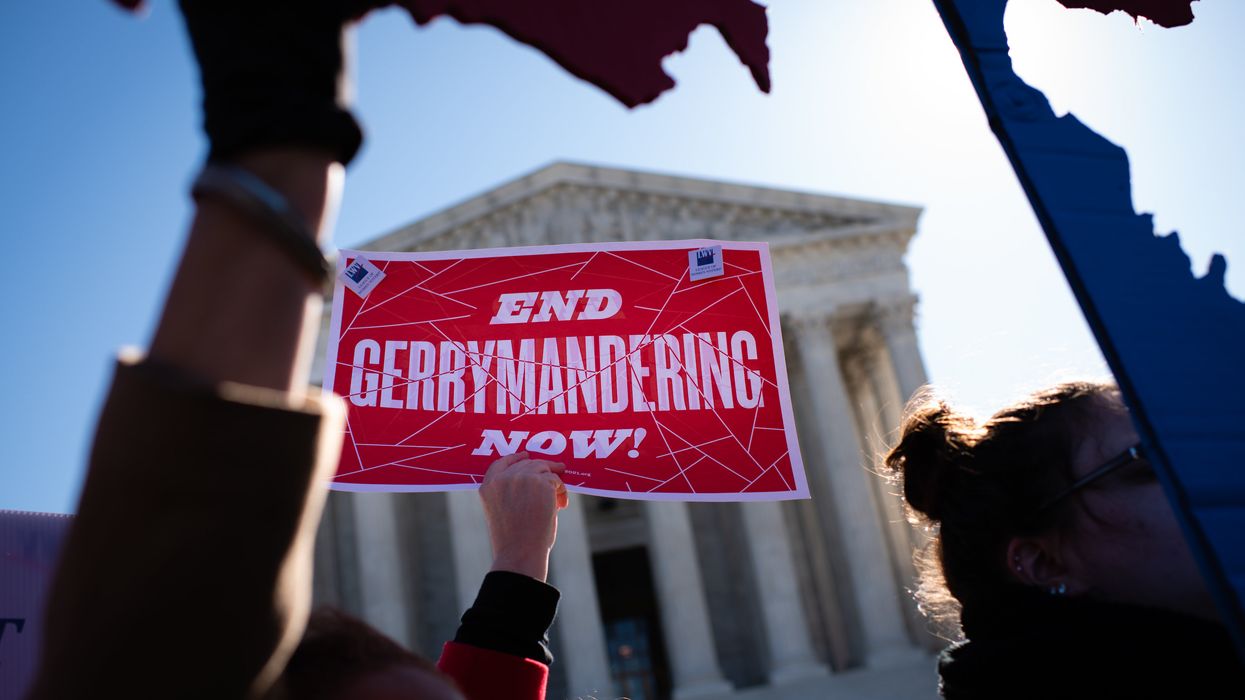President Donald Trump is actively urging Texas lawmakers to redraw congressional districts in what’s fast becoming a national showdown over electoral fairness. If successful, the effort could yield five additional safe Republican seats — boosting the GOP’s control to nearly 80% of Texas’s 38-member congressional delegation.
Texas already ranks among the worst offenders in the country for gerrymandered districts. As The Fulcrum reported in December 2024, two of its congressional maps are textbook cases in manipulated representation. The latest maneuver threatens to deepen that problem.
Sam Wang, director of the Electoral Innovation Lab, framed the danger bluntly:
“People think of gerrymanders as consisting of funny-shaped individual districts. But that’s not true… A clever expert with mapping software can lasso voters wherever they live… Gerrymandering is not a single-district offense. The offense arises from a skew in the statewide plan as a whole.”
“Lassoing voters” is exactly what Trump is advocating. He’s pressed Texas Republicans to redraw five competitive Democratic districts into safe GOP territory, calling it a “very simple redrawing” with major consequences for the 2026 midterms. According to The Texas Tribune, Trump’s team is collaborating directly with state legislators to engineer the switch.
Speaking to reporters on July 15, Trump declared:
“Texas will be the biggest one. Just a simple redrawing — we pick up five seats.” He added: “There could be some other states — we’re going to get another three, or four or five in addition.”
His broader national strategy remains somewhat opaque, but several states are reportedly in play:
- Missouri: Considering a redraw to flip one or two seats.
- Ohio: Legally required to update its maps — with potential GOP gains.
- Florida: GOP-favorable court rulings pave the way for future redraws.
- Utah: Legal challenges could prompt map tweaks that fortify Republican control.
- Wisconsin: Liberals won control of the state Supreme Court, but redistricting efforts have stalled — for now.
A Nationwide Tit-for-Tat looms on the horizon. Democrats are preparing their countermove. In California, Governor Gavin Newsom has floated a bold response: redrawing maps to favor Democrats if Texas proceeds. "Two can play that game," he said, suggesting special sessions, ballot initiatives, or even constitutional amendments could pave the way for 5–7 new blue-leaning districts.
According to Politico, House Minority Leader Hakeem Jeffries has joined the conversation, meeting with California lawmakers to discuss strategic responses — including locking in safe Democratic seats through mid-cycle redistricting.
This battle might expand across the country as other blue states, such as New York and Illinois, consider putting mid-decade redistricting on the table.
One only has to look at Illinois to realize that both sides play the gerrymandering game. As reported in the Fulcrum in December, there’s a narrow strip of Illinois that is the worst example, the 13th district, which connects disparate pockets of Democratic voters in Champaign, Urbana, Decatur, Springfield, and East St. Louis. The district splits six counties, as well as multiple townships, cities, and even precincts, contributing to a 14-3
Analyst Khaled Shoucair called it “the most aggressive Democratic gerrymander in the country,” reducing GOP seats from five to three through creative vote allocation. As he put it:
“A large number of Republican votes are wasted — either packed into overwhelmingly Republican districts or diluted in Democratic strongholds.”
The Bigger Picture
This is not just a turf war between parties — it’s an erosion of public trust. When only 10–15% of congressional districts are competitive, as is the case in the 119th Congress, the result is a landscape where 370 to 390 seats are virtual locks for one party. That’s roughly 85–90% of the House.
In non-competitive districts, general elections are perfunctory. Real contests happen in primaries — often shaped by low turnout and ideological extremism. Voters outside the dominant party feel powerless, their ballots reduced to symbolic gestures.
This moment demands attention. Gerrymandering is about nothing other than control. And when both parties distort district lines to preserve power, voters lose their voice. If our democracy is to survive, we must confront the consequences of a system where representation is predetermined and competition is the exception.
David Nevins is co-publisher of The Fulcrum and co-founder and board chairman of the Bridge Alliance Education Fund.




















Marco Rubio is the only adult left in the room